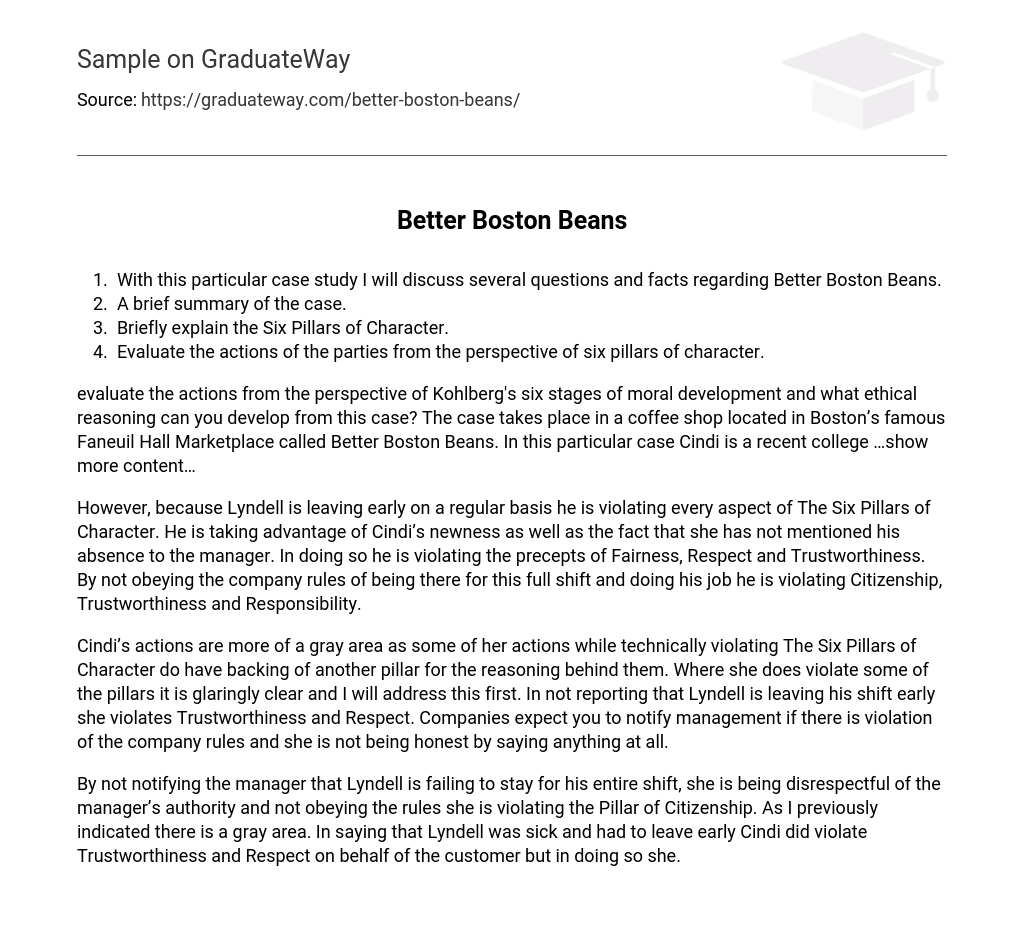- With this particular case study I will discuss several questions and facts regarding Better Boston Beans.
- A brief summary of the case.
- Briefly explain the Six Pillars of Character.
- Evaluate the actions of the parties from the perspective of six pillars of character.
Evaluate the actions from the perspective of Kohlberg’s six stages of moral development and consider the ethical reasoning that can be developed from this case. The case unfolds in Better Boston Beans, a coffee shop situated in the renowned Faneuil Hall Marketplace in Boston. In this instance, Cindi, a recent college graduate, is involved…
Despite Lyndell’s consistent early departures, he is breaching all facets of The Six Pillars of Character. He is exploiting Cindi’s inexperience and her failure to report his absence to the manager, thereby contravening the principles of Fairness, Respect, and Trustworthiness. Tresspassing the company mandate to fulfil his entire shift and perform his duties, Lyndell is violating the tenets of Citizenship, Trustworthiness, and Responsibility.
Cindi’s actions fall into a gray area as some of them technically violate The Six Pillars of Character, but they are supported by another pillar. However, there are instances where she clearly violates some pillars. I will address this first. By not reporting that Lyndell is leaving his shift early, she breaches Trustworthiness and Respect. Companies expect employees to inform management about violations of company rules, and her silence is a lack of honesty.
Not informing the manager about Lyndell’s failure to complete his entire shift shows disrespect for the manager’s authority and disregard for the rules. This behavior violates the Pillar of Citizenship. I mentioned earlier that there is some ambiguity here. Cindi violated Trustworthiness and Respect towards the customer by claiming that Lyndell was sick and needed to leave early, but she did so knowingly.





